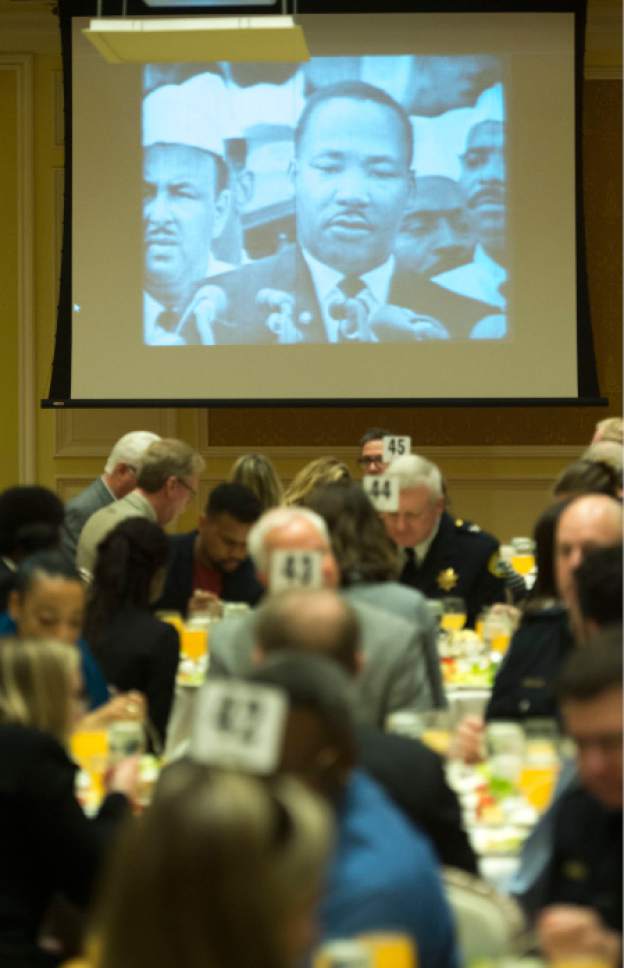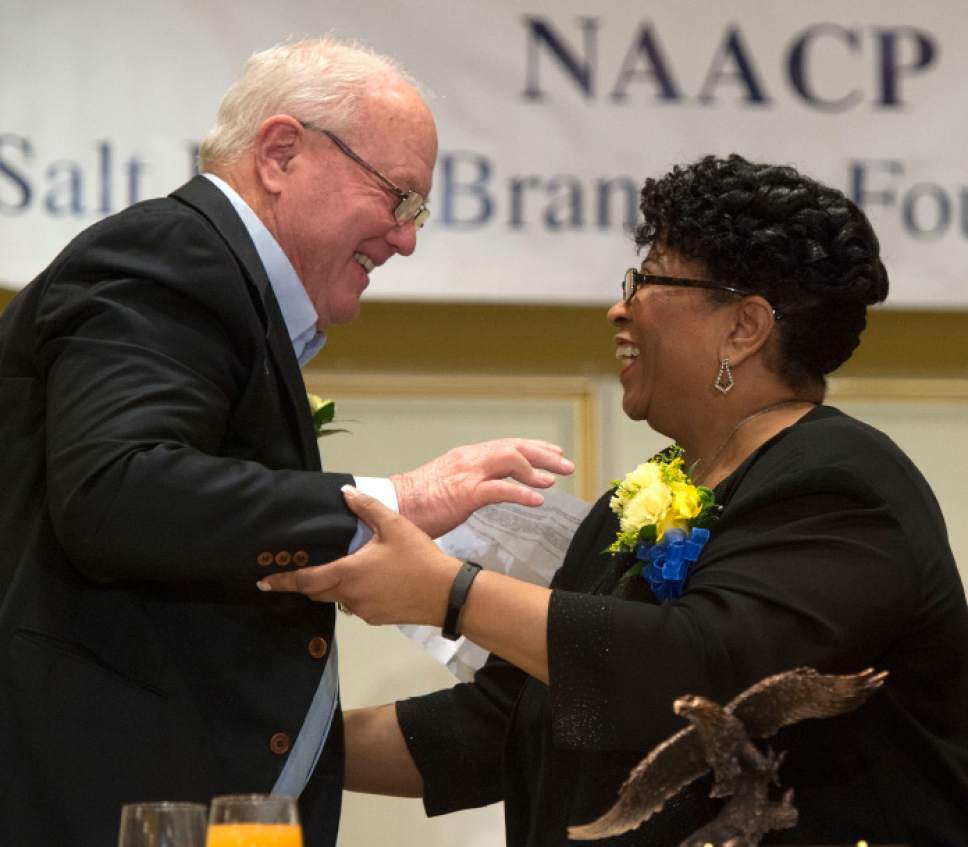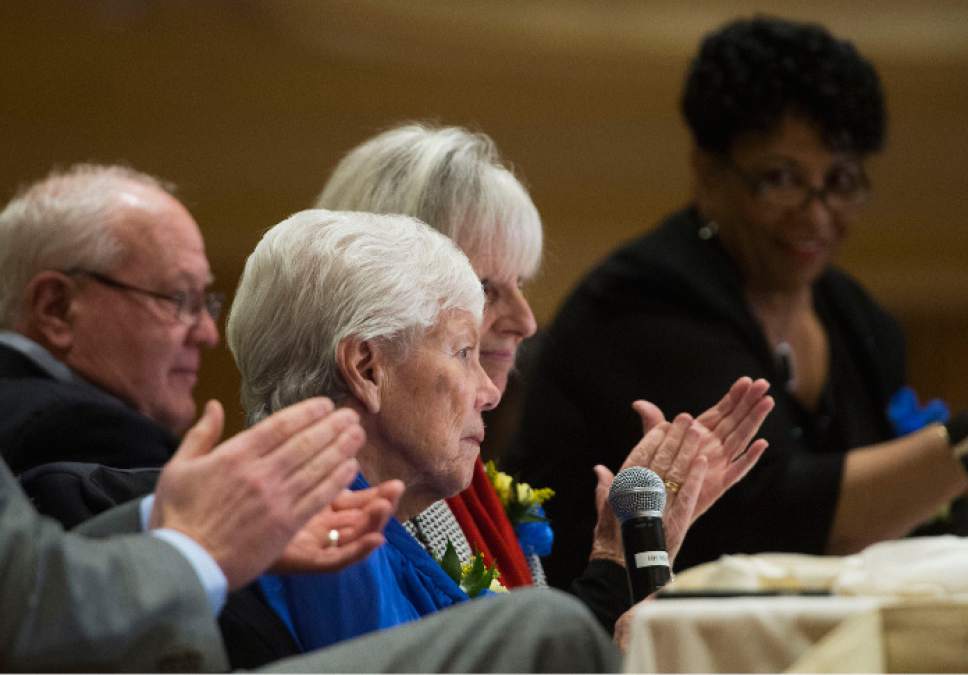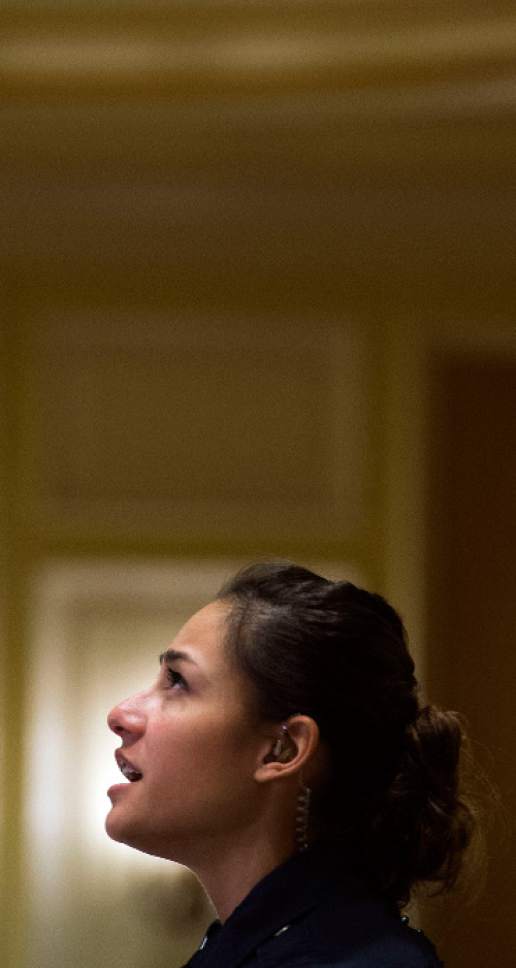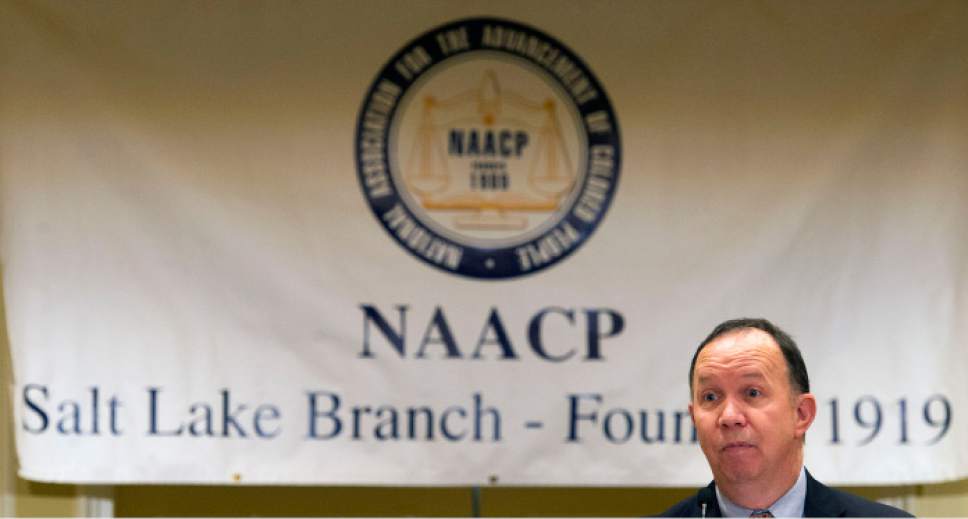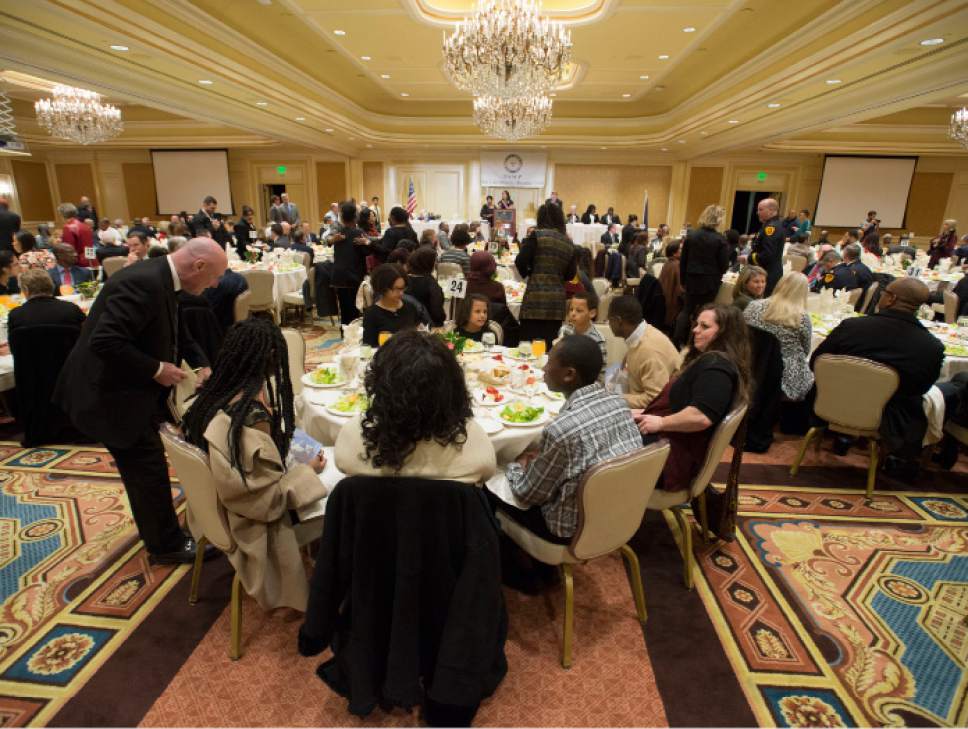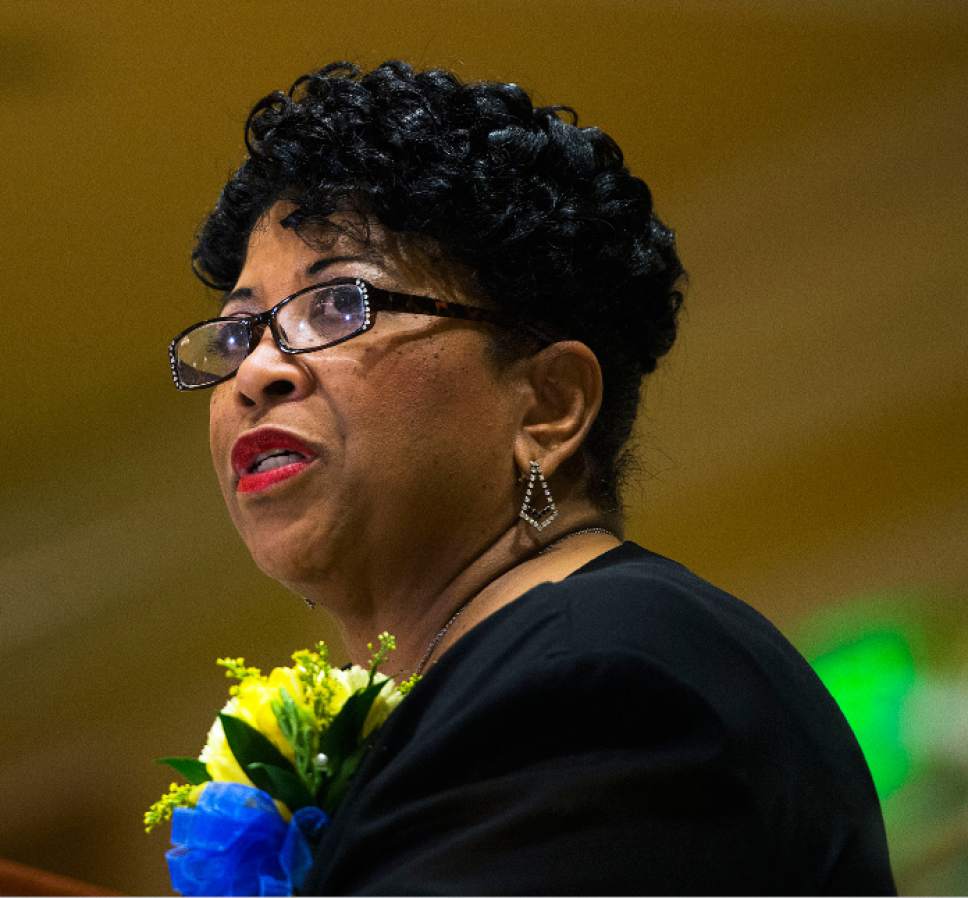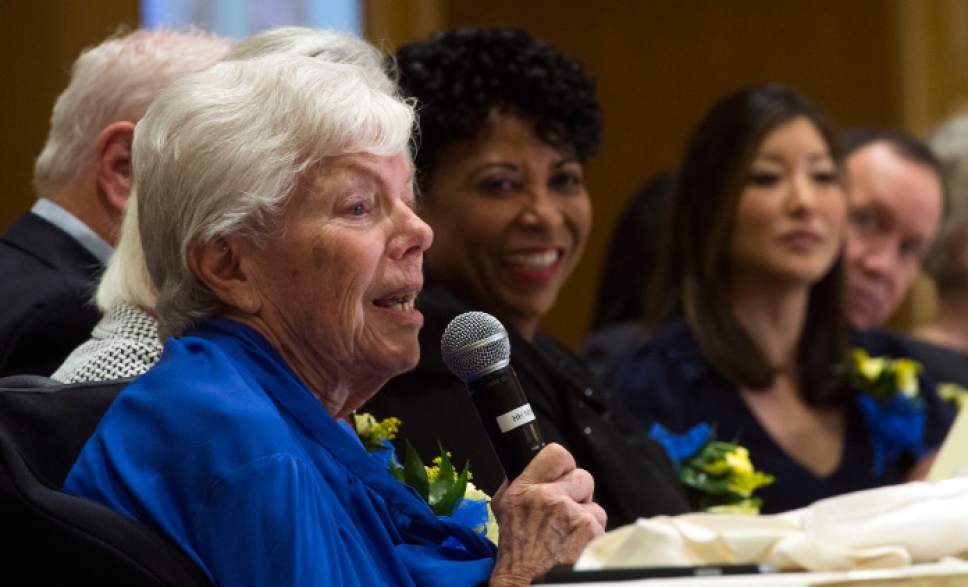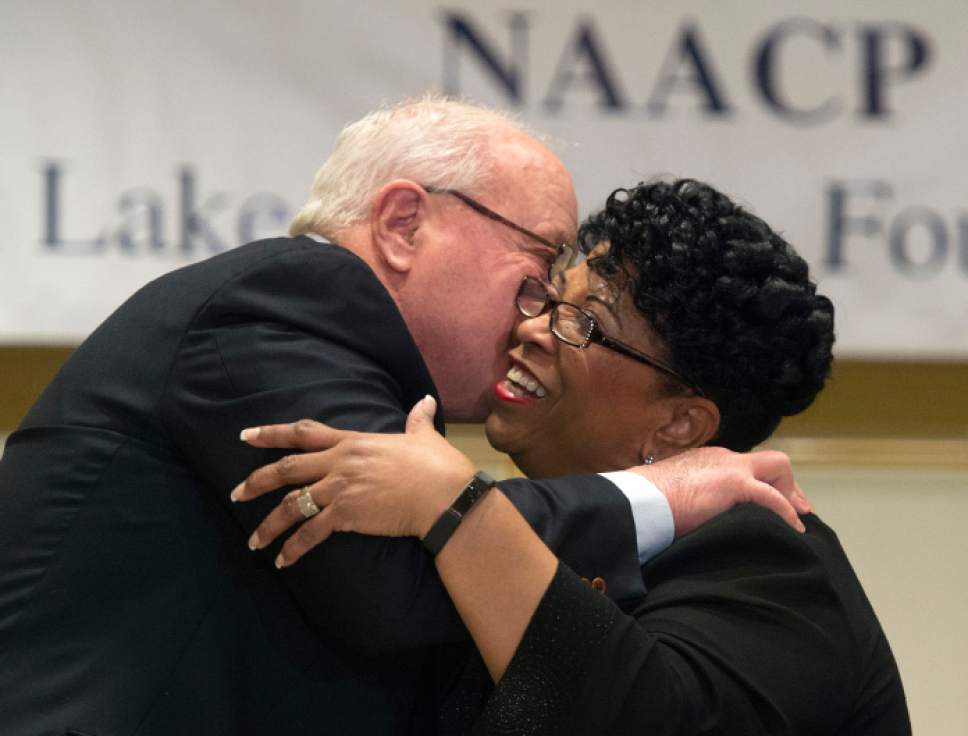This is an archived article that was published on sltrib.com in 2017, and information in the article may be outdated. It is provided only for personal research purposes and may not be reprinted.
If the Rev. Martin Luther King Jr. were alive today, he would be encouraged by what the states have done to reform their criminal justice systems, yet the civil rights leader likely would see much left to accomplish in the drive toward equality and fairness.
That was the conclusion of keynote speaker Chad C. Schmucker at the 33rd annual NAACP luncheon at the Little America Hotel in Salt Lake City.
Nearly 500 attendees crammed into the downtown hotel's ballroom Monday — Martin Luther King Jr. Day — to hear speaker after speaker celebrate King's memory and legacy with prayer, song, awards and pointed remarks.
Efforts to reform the criminal justice system in states and on the federal level focus on a dozen areas, said Schmucker, president of the National Judicial College in Reno, including better training of judges, ending mass incarceration (especially of people of color), reducing implicit bias among prosecutors and police, getting money out of the court system, improving the treatment of mentally ill people and dealing with the opioid epidemic.
"Everyone in law enforcement wants to improve public safety," he said, arguing most of these changes will do just that. Utah is among the states that have pushed to reduce penalties for drug convictions and focus on treatment, with the hope of shrinking the prison population over time.
Schmucker urged his listeners to continue to work toward judicial reform, quoting one of King's most well-known sayings, "The arc of the moral universe is long but it bends toward justice."
Utah activist Barbara Toomer knows all about taking the long view of change.
Toomer has been involved for decades in ADAPT, a national organiation that urges participants to engage in nonviolent direct action. She founded the Disabled Rights Action Committee (DRAC) in Salt Lake City in 1990 to fight for civil rights for people with disabilities.
Accepting the Rosa Parks Award on Monday, Toomer quipped from her wheelchair, "I always felt Mrs. Parks and I have the same goals: She didn't want to move to the back of the bus and I just wanted to get on the bus."
She organized an effort in Utah that pushed the Utah Transit Authority to make its system available to all persons with disabilities. Now she is urging the federal government to provide some assistance for those who want to stay in their homes, rather than only patients in a care facility.
"We are using the method of Dr. King — nonviolence," Toomer said as she accepted the award. "We have a long way to go."
The most familiar honoree was former University of Utah football coach Ron McBride, who was given the Dr. Martin Luther King Jr. Award.
Jeanetta Williams, president of the city's NAACP chapter, noted McBride's teams have been "perhaps the most diverse teams in the nation with players of Asian, Hispanic, African, Caucasian, Pacific Islander, and many other racial backgrounds."
"Coach Mac," the NAACP leader said, "has committed his life to advocating and educating the underserved communities furthermore, establishing a legacy of eliminating barriers and promoting diversity."
McBride was emotional accepting the honor, saying it was the "most prestigious" award he had ever received.
His first college roommate was a Pacific Islander, he explained, and the future coach vowed that if he ever ran a team, he would "tap into that culture."
When McBride arrived at the U. in 1990, the team had no minority players, he said. Now it has many.
"We started a summer job program ... that enabled us to create opportunities for minorities," he said. "A lot of our players — maybe 80 percent — are still here."
McBride mentioned his longtime friendship with the Rev. France Davis of Calvary Baptist Church in Salt Lake City.
Davis is "a voice of the people, a representative of Martin Luther King and a voice of this community," he said. "He is one of my favorite people."
The NAACP chapter also handed out awards to nine "first responders" — Detective Javier Chavez of the Salt Lake County Sheriff's Office; Provo Police Chief John King; Officer Matt Mann of the Cottonwood Heights Police Department; Lt. Adam Osoro of the Woods Cross Police Department; Capt. Fitzgerald Peterson of the Unified Fire Department; Officer Erika Smith of the Sandy Police Department; Agent Nick Street of the Utah Department of Public Safety; Officer Lacy Turner of the Kaysville Police Department; and Sgt. Jerry Womack of the Cedar City Police Department.
The "first responder" awards were presented by Jeffrey Thomas, the most senior Salt Lake City Fire Department chief officer and the first black fire officer in the state of Utah, according to the NAACP site. "As a firefighter, Jeff has dedicated his life and career to creating an inclusive diverse fire department both locally and nationally."


